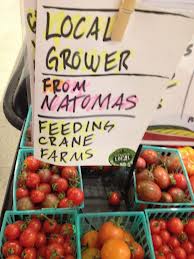
Northern California’s Feeding Crane Farms, founded in 2011, is an example of the new farming operations and farmers needed in California and the U.S.
Farm demographics continue to change in California. The average age of a farmer is 58 years old, relatively few heirs are willing to take over farms, and fewer people are interested in becoming farmers because of a variety of challenges. This dynamic is made more troublesome by the fact that food demand is expected to double worldwide by the year 2050. As a result, the opportunity and need for California farmers will be significant, and the cultivation of new farmers and ranchers is more important than ever.
Because of this, the California State Board of Food and Agriculture, which first embraced this subject in a meeting in 2011, devoted its June 4th, 2013 meeting to continue the discussion of programs that assist new farmers and ranchers. Presentations were heard from the Center for Land-Based Learning and the California Farm Academy, founded by board president Craig McNamara; the Agriculture and Land Based Training Association (ALBA); California FFA; the California Department of Veterans Affairs; and the Farmer Veteran Coalition.
One of the beginning farmers who participated in the ALBA program spoke of the difficulties he faced as a new farmer, primarily in the distances he must travel in order to sell his products. This was met by a suggestion from board member Rodney Taylor that the farmer contact his local school district in order to acquire a more local customer, a path the farmer said he had never thought to explore. Farm to school programs are a growing opportunity for small farmers to develop a volume-consistent customer.
The theme of the meeting was clearly established – identifying ways the board could assist the development of the next generation of farmers and ranchers. Whether they come from programs such as ALBA, are veterans returning from combat, or high school students who are excited about a life in farming, the board is committed to creating a place for each of them in California agriculture and doing all it can to facilitate their success.


